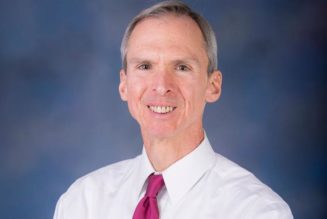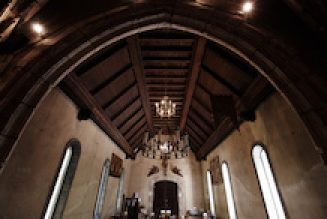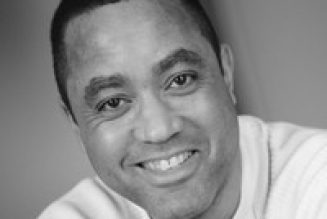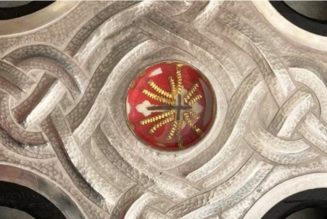Pillar subscribers can listen to this Pillar Post here: The Pillar TL;DR- The Tuesday Pillar Post
Hey everybody,
JD Flynn here, and you’re reading The Tuesday Pillar Post.
I’ve got great news for you: Today is something of a super Tuesday for us, because tomorrow is the mid-point of Lent.
For some of you, this probably means the midway point of some disciplined prayer, fasting, and almsgiving, which may well be already bearing fruit in your lives.
But if you’re like me, the mid-point of Lent is a good chance to begin again — to remember that early enthusiasm I had for the Lenten disciplines which have fallen gradually off my radar — and even to ask the Lord for help renewing my commitment to them.
Anyone who lives the Christian life knows there’s no shame in starting again, and the mid-point of Lent — this week — is a good time for it.
So let’s get on it. I aim to go “all out” on the back nine of this Lent — hope you’ll join me.
The news
But according to Catholic psychologist Chelsi Creech, serious Christians can sometimes face a particular obstacle if they experience domestic violence — the fear that leaving, even to protect themselves and their children, might be a betrayal of their marriage promises, and thus a betrayal of their divinely-ordered vocation.
In short, for some Catholics, fleeing domestic violence can feel like a choice with eternal consequences.
Creech is a co-founder of the Order of Judith, a Catholic project focused on helping Christian women escape from domestic violence and spousal abuse.
The Order of Judith helps women find money, a place to live, a lawyer — and helps women make plans to escape dangerous situations without putting themselves in more danger.
Creech said that the Order of Judith also aims to help abused women rebuild their lives.
“A lot of times there’s so much shame, and the only antidote to that shame is the light, and that is the light and love of Christ,” she told The Pillar.
“Knowing that you are welcomed and you are not damaged goods where we’ll tolerate you, but we really don’t want you super involved. Instead, saying, ‘No, you are cornerstones in our community because the love and strength and perseverance that you have demonstrated up to this point, that is what we want’.”
Read about the Order of Judith project, right here.
—
The Pillar reported last month on the USCCB’s licensing fees for parishes or other institutions to reprint in their worship aids any readings from the approved-for-liturgical-worship New American Bible.
And we’ve got all that for you.
In short, if you’re interested in the liturgical use of Scripture, or even just the Catholic approach to managing Scripture translations, well you should read this. You won’t find anything like it elsewhere.
What if the technology we rely on every day was made by people seeking to build up Christendom rather than tear it down? Fidei is a Catholic-run technology company working to do just that. They offer email services to parishes, small businesses, families, and individuals, with more to come. Resolve to give up “big tech” this year and visit www.fidei.email today.
Arguello was predicted to win, as the preferred candidate of the conservative majority in the bishops’ conference. Meanwhile, Cardinal Jose Cobo of Madrid became the conference vice-president. With Cobo known as “the pope’s man in Spain,” the two represent different factions among the bishops of Spain, with different pastoral priorities.
And while we’ll have analysis later this week on what the election means for Spain, and Europe, if you want the background on the election itself, you can read this analysis from Luke Coppen, published Friday.
—
A lot of people yesterday were talking about the Supreme Court — because of a 9-0 ruling Monday related to the candidates for the upcoming presidential election.
We were thinking about a supreme court yesterday too, but not that one.
The changes, though seemingly small, certainly got a lot of canon lawyers talking this week, trying to unpack the full reasoning for a set of revisions to the Signatura’s policies. In fact, The Pillar’s Ed Condon spent much of the day yesterday on the phone with esteemed scholars and Vatican sources, trying to suss out exactly what the changes would do.
During the course of that work, Ed even spent several hours down a very interesting rabbit hole, which intrigued us both, and a number of other canon lawyers, but turned out to be something of a false alarm.
Of course, he didn’t mind doing that kind of research, even with the rabbit hole. It’s the kind of thing we love doing at The Pillar, and the reason you subscribe — because when something happens at the Holy See, the USCCB, or elsewhere in the Church, we’ll take the time we need to turn it inside out and upside down, to shake it hard, and to see what falls out.
We love our subscribers, because they make The Pillar the only Catholic journalism project in the world with the freedom to do the deep dives that the Church’s governance really deserves. So thank you.
Anyway, Ed put together an analysis, which concludes that while most of the changes relate to terminology and language, they also highlight some of the important curial and canonical developments of recent years — and they continue ongoing debate about the nature and exercise of governing authority in the Church.
Get up to speed on the Apostolic Signatura, right here.
The ensuing scandal was the first high-profile clerical sexual abuse case in Portugal in recent history.
And the scandal became all the more acute in 1998, when the priest, then-Fr. Frederico Marcos da Cunha, fled the country while on a furlough from prison, which had been given to allow him to visit his mother.
Cunha has lived in Brazil ever since. But he was only laicized last month.
Why did it take 31 years? And what are the lessons for Church leaders?
On a strange, sad, and fascinating case, Filipe D’Avillez reports from Portugal. Read it here.
AI eyes Mo. move
Denver’s Augustine Institute has been since 2005 a center for the formation of lay Catholics across the country. That formation includes a theological graduate school, and a large publishing and production operation, which produces podcasts, films, audio dramas, catechetical and sacramental prep materials, and which operates formed.org, a Catholic streaming content service which says it has more than 1 million subscribers.
The Augustine Institute, in short, does a lot — and is influential on the life of the Church across the United States, especially as more of its graduates become parish and diocesan leaders and officials.
But the Augustine Institute believes it can do more. And The Pillar broke the story on Saturday that the institute is eyeing a move to a large (beautiful) campus outside St. Louis, Missouri.
The move would mean that the institute would have student housing and could enroll more on-campus graduate students. It would also mean — the institute hopes — that it could become a centrally located center to offer retreats, conferences, and seminars to lay people, especially those working in and around the Church.
Of course, the move raises some questions in Denver, which in recent decades has been kind of a Silicon Valley for lay apostolic projects in the U.S. Catholic Church, with a bent in the archdiocese towards supporting and helping to launch various entrepreneurial Catholic initiatives, especially those focused on evangelization and education.
So some people in Denver have asked — with a new archbishop likely to arrive in two years, and probable changes coming for the archdiocese — whether the Augustine Institute will be the first of several projects to find other parts of the country to call home.
The Augustine Institute’s president, Tim Gray, says that he doubts it, and that he hopes the current Denver campus of his institute can remain a center for lay apostolic initiatives in the Church.
You can read all about it here.
And, as you can imagine, because I live in Colorado, I’ve gotten a lot of feedback on this reporting from local Catholics who would be impacted by a move from the Augustine Institute.
The most interesting conversations I’ve had have been about the inherent tension in Christian culture between the creation of stable Christian communities, and the missionary impulse by which the Gospel is spread.
That tension is exhibited even in the New Testament — Paul was himself an itinerant missionary, but a lot of his work, or at least his letter-writing, focused on stabilizing and supporting the growth of local Christian communities.
In Christian history since, there have been those who feel called to travel afar with the Gospel, and those who feel called to set deep roots in a particular place, for the ongoing work of catechesis, pastoral care, sacramental ministry, and — gradually — for the formation of comprehensive and encompassing Christian community.
Over time, different religious institutes and orders have found varying charisms along the spectrum between mendicant itinerancy, on the one hand, and the construction of thousand-year-monasteries, on the other.
At the same time, the hierarchical infrastructure of the Church has historically built up its own sense of the goodness of particularity — the goodness of the particular church itself — a “portion of the People of God” — and the goodness of the parish as the locus of Christian life, in which Christians can exercise the kind of mutual responsibility for one another embodied in the New Testament, and exercise their missionary call within a particular geographic framework.
All of those elements of the Church’s life — of the movement of the Holy Spirit — have worked often together in the life of the Church, for the sake of her mission, and that’s a good thing. The Church needs the parish, the Franciscans, and the Benedictines, each with their own charism, and each with their own discernment about their place in the spread of the Gospel, and their part in its continued relevance in the lives of particular communities.
But today, we are living in a change of era in the Church — and with the Second Vatican Council’s emphases on the universal call to holiness and lay co-responsibility for the mission of the Gospel — new kinds of things are emerging in the Church: lay ecclesial movements, and more lay led apostolates or Catholic initiatives.
Many of those institutions don’t quite fit neatly into the Church’s law, or because canon law is underdeveloped on those subjects, don’t fit into clear canonical jurisdiction very much at all.
But those institutions and realities also have their own discernments to make about their place in the particular churches in which they grow, and their calls to missionary activity and impulse. Those discernments will be both guided by the history of the Church, by their own sense of their charism, and by the unfolding path of Providence. But because these kinds of apostolic initiatives or movements are different from parishes and religious institutes, their discernments will be different as well.
It’s not my place to offer an opinion on any particular move — it is instead, I think, worth noting that a move like the Augustine Institute’s points to the way that new lay-led initiatives and movements have taken on a more central role in the Church’s life than in previous decades or centuries, and that the whole Church would and will benefit from more thinking and talking about the theology of the laity, of lay apostolic initiatives, and of their relationships to the Church’s structures, places, norms, and charisms.
As lay-led initiatives mature, grow, and become more prominent, the Church’s relatively anemic theology of the laity deserves more careful prayer and reflection in the years to come.
—
Please be assured of our prayers, and please pray for us, we need it.
And on the anniversary of her death, enjoy some Patsy Cline. That woman had a voice — even if she was a bit crazy (for feeling so lonely).
Yours in Christ,
JD Flynn
editor-in-chief
The Pillar
What if the technology we rely on every day was made by people seeking to build up Christendom rather than tear it down? Fidei is a Catholic-run technology company working to do just that. They offer email services to parishes, small businesses, families, and individuals, with more to come. Resolve to give up “big tech” this year and visit www.fidei.email today.
Comments 8
Services Marketplace – Listings, Bookings & Reviews










